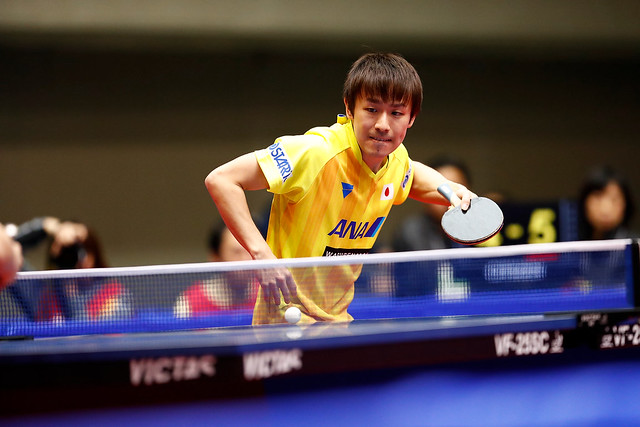by Ian Marshall, Editor
Liu Shiwen, not present this year, is the most successful player in the history of the tournament. She won four times, emerging the champion in 2010 and 2012 in Guangzhou before retaining the title in 2013 in Hong Kong and then prevailing in 2016 in Dubai.
Consecutive wins for Liu Shiwen, it is the same for colleague, Guo Yue, she won in 2008 in Sapporo and in 2009 in Hangzhou; other than Zhu Yuling they are the only players to have retained the title.
Significantly no player has ever won three times in a row.
It is undoubtedly a source of motivation for Zhu Yuling and surely there is another source; she has a point to prove. At the recent Marvellous 12 held in Shenzhen, she finished in sixth place; notably, even though the runner up two years ago in Düsseldorf, she has not been selected for the women’s singles event at the forthcoming Liebherr 2019 World Championships to be staged in April in Budapest.
Rather differently, the silver and bronze medallists from last year are both Budapest bound. Colleague, Chen Meng, beaten by Zhu Yuling, appears on the Yokohama entry list as does Japan’s Kasumi Ishikawa, one year ago she reserved the third step of the podium by overcoming Chinese Taipei’s Cheng I-Ching.
Miu Hirano, having won the women’s singles title at the Seamaster 2017 Asian Championships in Wuxi, is the one further host nation representative; for Chinese Taipei, Chen Szu-Yu lines up alongside Cheng I-Ching.
A national association is limited to two entrants.
Confirmed entries – women
1. Zhu Yuling (China) 2. Miu Hirano (Japan) 3. Chen Meng (China) 4. Kasumi Ishikawa (Japan) 5. Cheng I-Ching (Chinese Taipei) 6. Feng Tianwei (Singapore) 7. Suh Hyowon (Korea Republic) 8. Doo Hoi Kem (Hong Kong) 9. Jeon Jihee (Korea Republic) 10. Chen Szu-Yu (Chinese Taipei) 11. Lee Ho Ching (Hong Kong) 12. Suthasini Sawettabut (Thailand) 13. Manika Batra (India) 14. Mahshid Ashtari (Iran) 15. Lin Ye (Singapore) 16. Maha Faramarzi (Qatar)



